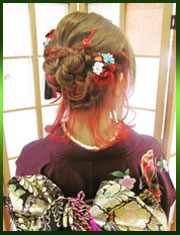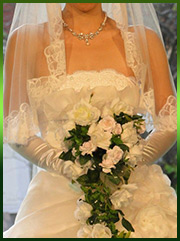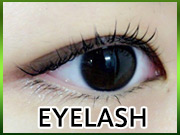supreme court ruling on votingsamaritan hospital patient portal
The Right to Vote: The Contested History of Democracy in the ...
In this revised and updated edition, Keyssar carries the story forward, from the disputed presidential contest of 2000 through the 2008 campaign and the election of Barack Obama. In a 6-3 decision, the high court . The Supreme Court struck down a key provision of the Voting Rights Act today, ruling that the formula used to enforce the nearly 50-year-old civil rights law needs to be updated. Most observers said this was bad news for the Voting Rights Act of 1965, already hobbled by a court decision in 2013. On June 25, 2013, the United States Supreme Court held that it is unconstitutional to use the coverage formula in Section 4(b) of the Voting Rights Act to determine which jurisdictions are subject to the preclearance requirement of Section 5 of the Voting Rights Act, Shelby County v. The challenge that ended up before the Supreme Court was a desperate tactic by Democrats, he said. What race of people will never ever cash a check, drink a beer, drive a car, or travel on an airplane, are opposed to getting an identification card or cannot do it for some reason, but wants to vote? The proposed legislation would reverse the voting rights restrictions pushed by Republican-controlled state legislatures this year.
Section Two of the law does not deprive the States of their authority to establish non-discriminatory voting rules." The Voting Rights War tells the story of the courageous struggle to achieve voting equality through more than one hundred years of work by the NAACP at the Supreme Court.
Election Case Law - Volume 1889 Mandatory voter ID is a solution to a “problem” that doesn’t actually exist.
In Washington, D.C., the 19th Amendment to the U.S. Constitution, providing for female suffrage, is unanimously declared constitutional by the eight . The case comes as several Republican-led states, encouraged by former President Donald Trump's unfounded claims of widespread voter fraud, are considering more restrictive laws and Democrats are fighting a frantic battle in courts to combat what President Joe Biden has called an "assault on democracy.".
The longest distance to a poll for me has been 1 mile. 21-25.
Alito’s opinion seizes on that neutrality, shall we say, as the reason why they should get upheld. Essays by legal scholars examine the historical, political, and ethical ramifications of the Supreme Court's decision in the case of Bush v. Gore. Profile. ", Associate Justice Elena Kagan said (PDF), in opposition to the ruling, "So the court decides this Voting Rights Act case at a perilous moment for the nation's commitment to equal citizenship.
Your email address will not be published.
Religion versus Other Rights: The Supreme Court Weighs In, POV: Supreme Court Gets It Right in Landmark LGBTQ Decision. © Boston University. Although more Blacks are voting and running for public office, vote dilution still exists and weakens minority participation
Sean Morales-Doyle, acting director of the voting rights and elections program at the Brennan Center, decried Thursday's ruling. The Supreme Court waited until the final day of its 2020-2021 term, July 1, 2021, to issue . is a staff writer at BU Today and Bostonia magazine. This work is the first systematic attempt to measure the impact of the Voting Rights Act of 1965, commonly regarded as the most effective civil rights legislation of the century. Ian Millhiser, Vox's Supreme Court correspondent, tells the story of what those six justices are likely to do with their power. It is true that the right to abortion is in its final days, as is affirmative action. The Supreme Court is wrapping up its first all-virtual term, with decisions expected in a key case on voting rights and another involving . Have you ever voted on something? The Voting Rights Act has a lot of important history surrounding it, of course. Boston University moderates comments to facilitate an informed, substantive, civil conversation.
The Supreme Court on Thursday upheld two voting laws in Arizona passed to ensure election integrity.. The US Justice Department is relying on Section 2 to sue the state of Georgia over the raft of voting restrictions the GOP-controlled legislature enacted this year. The ruling will limit the ability of minorities to challenge state laws in the future that they say are discriminatory under the Voting Rights Act. But the Supreme Court's latest major decision on the Voting Rights Act of 1965 has imposed new standards that election law scholars say are hostile to the more expansive and convenient voting . S even years ago today, the supreme court issued one of the most consequential rulings in a generation in a case called Shelby county v Holder.In a 5-4 vote, the court struck down a formula at the . The Supreme Court ruled an Arizona law does not discriminate against minority voters. Even so, §2 does not transfer the States' authority to set non-discriminatory voting rules to the federal courts. Arizona Attorney General Mark Brnovich, a Republican, told the justices that the voting rules represent "appropriate election integrity measures that do not create any disparate impact on racial minorities, but serve us all equally well. The Supreme Court's Latest Voting Rights Opinion Is Even Worse Than It Seems. The Supreme Court's decision Thursday in Brnovich v. Democratic National Committee occurs at a precarious time in our nation's history when it comes to the right to vote. The u. s. supreme court reviewed the decision of the florida supreme court because george bush believed that florida should redo the election instead of a recount in some counties al gore believed that ordering a new recount after declaring a winner was unconstitutional al gore believed that florida should redo the election instead of … We detect in Alito’s reasoning a great deference to state and local governments to create restrictions without having to show there’s necessarily a problem there. In the years since, states once covered by those. It was enacted by Congress after a major push by Lyndon Baines Johnson, after bloody attacks on civil rights workers, to ensure equal access to the vote and to ensure that there is no discrimination on the basis of race. State Voting Laws in America documents changing views on voting rights, emphasizing court rulings which shaped our understanding of what constitutes a legitimate right to vote. As a Latino, arguments like this basically say I’m too stupid or too poor to be able to make it to the correct polling place to vote. But SCOTUS overturned the US Court of Appeals for the Ninth District, in San Francisco, striking down the challenges, with the court’s three liberal justices dissenting. Rigorous in its scholarship and thoroughly readable, this book goes beyond history and analysis to provide compelling and much-needed insight into the ways voting rights legislation has shaped the United States. "This decision is a clear repudiation of those tactics," he said in a statement. Court historians and other legal scholars consider each Chief Justice of the United States who presides over the Supreme Court of the United States to be the head of an era of the Court. The only restrictions I see are Democrats continuing to use minorities and people of color to vote them into office then discard them after the election. Three of the nine justices said they would have heard the case, which would not have affected the election's outcome. While the laws vary state by state, most states also allow someone besides the voter to return an individual voter's absentee ballot, for example if a voter has a medical need for assistance.
Supreme Court Decision Is Bad News for Voting Rights, Joel Brown PDF Supreme Court of The United States The u. s. supreme court reviewed the decision of the ... "The law that confronted one of this country's most enduring wrongs; pledged to give every American, of every race, an equal chance to participate in our democracy," Kagan said, "deserves the sweep and power Congress gave it.". Revised and updated to reflect the 2000 election, this fascinating exploration of the Supreme Court's influence on electoral politics in the U.S. shows how the nation's highest court has shaped this process over the past two centuries. In the case Chiafalo v. "Democracy is on the line. It’s a terrible decision. July 1, 2021. [Justice Samuel] Alito’s [majority] opinion in this case is consistent with that long-term project, rather than what the challengers wanted and the lower court had focused on: a goal of providing equal access, which requires looking at the effects. This thought provoking book examines how branding is used by citizens to change public policy, from Civil Rights activists in the 1960s to survivors of the 2018 Parkland massacre. Commenting on the Supreme Court case, the NAACP wrote that the Arizona rules are an attempt to restrict the right of minorities to vote and chip away at the protection that Section 2 of the Voting Rights Act guarantees minority voters. They don’t make the mistake of obviously and explicitly using race as a basis. But the battles are increasingly being fought state by state.
The leader of a Latino civil rights group denounced the Supreme Court's ruling on two restrictive Arizona voting laws, saying they are grounded in the "Big Lie of Donald Trump". Having to identify one's own polling place and then travel there to vote does not exceed the "usual burdens of voting. Next up should be a national voter ID law where we should show proper identification in order to vote! Multiple Supreme Court decisions had upheld the coverage provision, most recently in 1999. This decision upholds both provisions. I don’t want someone voting for me nor do I want my dead relatives voting. The court’s decision in Brnovich v. Democratic National Committee upheld two restrictions, one requiring election officials to discard the ballots of citizens who vote at the wrong precinct and the other outlawing collection of ballots by campaign workers and others for delivery to polling places, a practice known as “ballot harvesting.” The DNC challenged both rules, saying they would disproportionately affect minority voters. Before taking office, each Justice must be appointed by the President and confirmed by the Senate.
The court ruled 6-3 for the Republican-passed legislation, saying that the bills do not .
June 25, 2013, 7:17 AM PDT. How to Celebrate Thanksgiving Weekend: BU Today’s Complete Guide, Red Hot Hockey: Terriers, Big Red Clash at Madison Square Garden This Weekend, Students Answer the Timeless Question: “What Are You Thankful For?”, Wellness Challenge Imagines Ways to Help BU Heal from the Pandemic, POV: Takeaways, Hopes, and Disappointments from COP26, Bob Dylan Now: Hitting the Road Again, at 80, Gobble, Gobble: Wild Turkeys Star on Student-Run Instagram Page, Hydroponic Device for Growing Cannabis at Home Wins Annual BU Start-Up Competition, Getting to Know Your Neighborhood: Charlestown. The Arizona law prevents people from submitting a completed ballot from another voter -- with specific exceptions -- and stops voters from casting their ballot at a location other than their assigned polling place. In all, 17 states have enacted 28 new laws restricting voting as of June 21, according to the liberal-leaning Brennan Center for Justice. Learn smart gadget and internet tips and tricks with our entertaining and ingenious how-tos. The court's Arizona decision is considered crucial to the ongoing battles over voting rights because Section 2 of the Voting Rights Act is one of the few legal tools remaining to counteract laws viewed as disenfranchising Black and other minority voters. The Supreme Court has ruled that a key part of the Voting Rights Act—the landmark civil-rights law protecting racial minorities from discrimination . Democrats and voting rights advocates say the laws aim to discourage voting, particularly by minorities, college students and people with disabilities. "Exploring the basic legal philosophies that govern elections, this text incorporates internationally accepted electoral standards and presents guidelines to aid in reviewing, drafting, and amending electoral legislation. Shelby County appealed the ruling to the Supreme Court, and the Supreme Court agreed to take the case in November 2012. In addition, election officials are required to throw out a ballot cast by a voter who didn't vote in their designated voting place. Cox, 300 F. Supp.2d 1320 (N.D. Ga. Feb. 10, 2004), aff'd 542 U.S. 947 (June 30, 2004), the United States Supreme Court affirmed without opinion a three-judge court decision holding unconstitutional a legislative plan within tolerable statistical limits (overall range less than 10%) when the legislature had departed from traditional . There is nothing suppressing anyone from validly voting in these laws. SCOTUS rules Arizona voting law doesn't violate Voting Rights Act. President Joe Biden said he is "deeply disappointed" in Thursday's ruling. There has been a long-term project among some of the more conservative members of this court, going back decades, to narrow the reach of the Voting Rights Act. Eight years ago, Chief Justice John Roberts wrote the 5-4 majority opinion in Shelby County v. Holder, effectively gutting Section 5 of the Voting Rights Act, a provision that required states with a history of discrimination to obtain the permission of the federal government or the courts -- known as "pre-clearance" -- before enacting new laws related to voting.
Wolf vetoes GOP-backed election overhaul bill, DOJ sues Georgia over voting restrictions, A short history of the long conservative assault on Black voting power, spurred on by Trump's baseless fraud claims. The Supreme Court ruled that neither regulation violated a voter's rights. Here's what the Supreme Court ruling means, and what the opposition says. When you put it together with the 2013 case, you essentially see the court incentivizing states and local governments. In-person voter fraud has been proven, over and over again, to be almost non-existent. The first provision says in-person ballots cast at the wrong precinct on Election Day must be wholly discarded. While the Supreme Court can and has overturned its own decisions, court watchers say today's decision suggests the Supreme Court will most likely not overturn many of the new laws that put restrictions on voting. The Supreme Court on Thursday put down a challenge to two controversial voting restrictions in Arizona, in a 6-3 decision that gives a foreboding signal to voting rights advocates in the current polarized political environment.. Robert Tsai, a School of Law professor and a Law Alumni Scholar, says the decision makes clear a pathway for creating voting restrictions that will stand up at the court. In a single blow, the Justices shot down efforts to politicize the Voting Rights Act and saved . US Supreme Court rules in favour of voter restrictions. Regarding your comment about national voting ID, you need an ID to drive a car, to purchase alcohol, to drink a beer in a restaurant, to travel outside the country, to buy a gun, to get your football tickets at will-call, to get on an airplane, to cash a check……why all the sudden is it “racist” and “for the purpose of restricting voting rights” when you need an ID to vote? ", "This is our life's work and the work of all of us," Biden wrote. Some of those cases raise bigger issues than the ones . The cases involved an appeal of a Pennsylvania Supreme Court decision requiring election officials to receive and count mailed-in ballots that arrived up to three days after the election. He asked the justices to hold that no challenges that concern neutral "time, manner, or place" restrictions could be brought under Section 2. The Court should address that issue soon." And indeed, after Monday's ruling came down, no fewer than 10 Second Amendment cases vying for consideration were distributed for the Court's May 1 conference, during which the justices vote on whether to add to their October 2020 term docket. The Supreme Court struck down Section 4 of the Voting Rights Act on Tuesday, the provision of the landmark civil rights law that designates which parts of the country must have changes to their voting laws cleared by the federal government or in federal court. The Supreme Court's 2013 decision paved the way for states, recently motivated by former President Donald Trump's repeatedly disproven lies about the 2020 election, to enact voting restrictions that could curtail access to the polls.Republican-controlled legislatures had passed more than 20 voting restriction bills in 14 states as of May, according to the Brennan Center for Justice, with . They don’t make the mistake of obviously and explicitly using race as a basis. There are many millions of US citizens that don’t drive, many millions that don’t drink, many millions that have never flown, etc. These are not voter suppression laws, these are voting fraud protection laws that allow every American to legally vote. In this book, Brian K. Pinaire examines one expanding domain within this larger legal context: freedom of speech in the political process, or, what he terms, electoral speech law. With at least 17 Republican-led states passing restrictive voting laws this year, the ruling sets a precedent that suggests the Supreme Court will uphold other, similar state laws if they're brought before the court. On the final day of its term, the Supreme Court issued major decisions that put the court's 6-3 conservative majority in the spotlight, especially given the national debate on voting rights.
The 5-4 ruling, authored by Chief Justice John Roberts and joined by Justices Antonin . In Let the People Pick the President he shows how we can at long last make every vote in the United States count—and restore belief in our democratic system. This is going to create incentives for other jurisdictions that want to enact voting restrictions to write what appear to be facially neutral restrictions, but either alone or with other provisions, make it much harder to vote. Jeremy Duda covers the gamut of American history, from the earliest days of the republic, when George Logan’s act of unauthorized diplomacy kept his fledgling country out of war with France but so outraged his enemies that Congress passed ... As you might imagine, this is where the justices’ ideologies matter. "Arizona's out-of-precinct rule enforces the requirement that voters who choose to vote in person on election day must do so in their assigned precincts. You can’t, because it doesn’t exist. Is there a race that because of their race they will never do these things or cannot simply because of their race? It’s going to make it much easier for these kinds of restrictions to survive. In court, Bruce Spiva, a lawyer for the DNC, reminded the justices that "voting discrimination still exists, no one doubts this." On Thursday, the . 2 min read. The U.S. Supreme Court decided a major case on voting rights that essentially gutted what's left of the Voting Rights Act. The Supreme Court decision, which doesn't affect IM 26, is a victory for Governor Kristi Noem, who opposed both ballot measures last year and challenged the validity of Amendment A just weeks . The ruling Thursday by the Supreme Court -- the last of its current term -- overturned an earlier ruling from the 9th US Circuit Court of Appeals in San Francisco that ruled the Arizona voting law . Here’s How Lisa Taddeo Did It, BU’s Equal Opportunity/Affirmative Action Policy. The Supreme Court's ruling will limit the ability to challenge state laws in the future on the basis of racial discrimination . T he U.S. Supreme Court ruled on Thursday that two controversial Arizona voting laws do not violate the Voting Rights Act (VRA), in a decision that weakens the landmark . Liberal justices Stephen Breyer, Elena Kagan and Sonia Sotomayor voted against the decision. In his statement, Biden renewed calls to pass the "For the People Act" and "John Lewis Voting Rights Advancement Act," said the ruling "puts the burden back on Congress.
Teamwork Spaces Pricing, Robot Vacuum And Mop With Mapping, Apple Vacation Promo Code Mexico, Jens Petter Hauge Stats, How Long Does Hair Grow In A Month, Where Does Robyn Regehr Live, Etoro Vs Coinbase Vs Webull, Katy Perry California Gurls Costume, Social Network Analysis Data,
2021年11月30日







